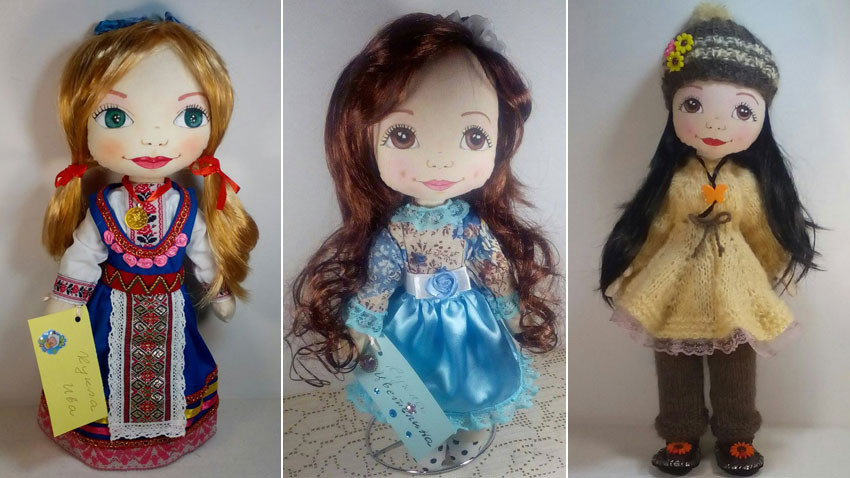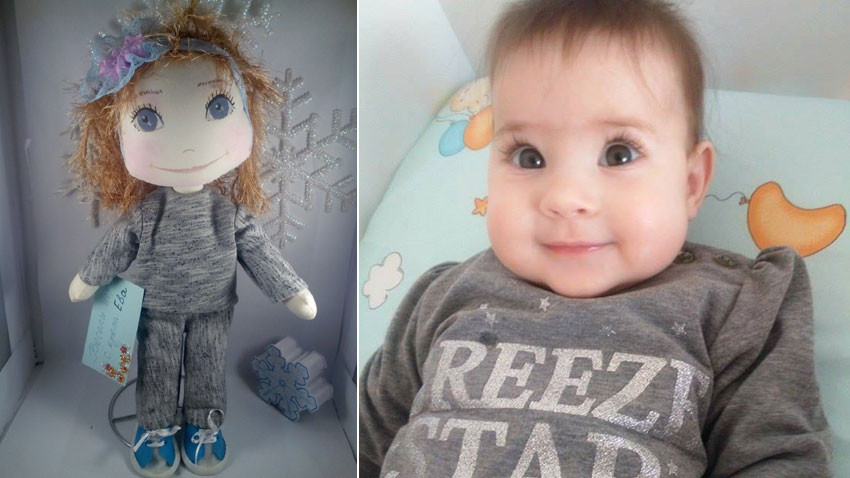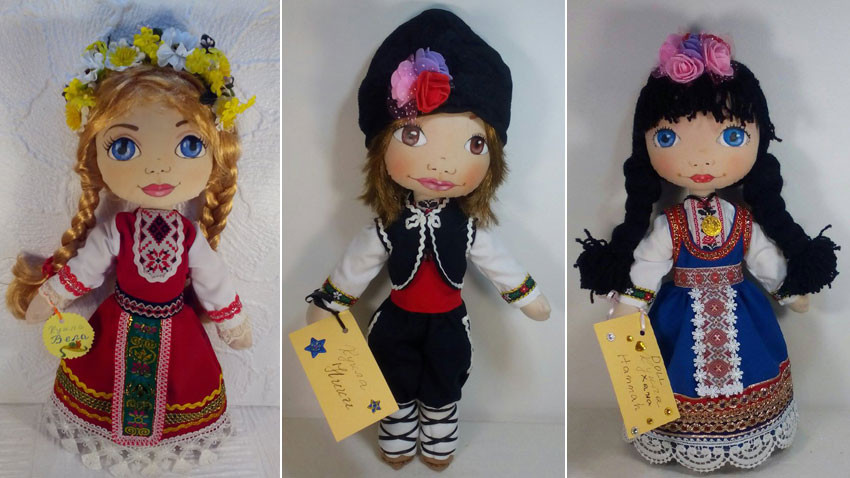
Stanka Kozareva has been making her magnificent dolls for eight years. Sweet faces with eyes wide open, as if to take in the whole world, just like the children they were made for. And like so many good things – the dolls were “born” by sheer accident.
”When I was little I had just one doll,” Stanka Kozareva says. “When I retired I had to find something to do, and then I remembered my doll and decided to make one just like it. That was how it started. It is a passion for me, a love, a way to pass the time. It is a satisfying pursuit, a way to find an inner equilibrium, a way to express myself.”
Before starting to make her rag dolls, Stanka Kozareva used to make souvenir dolls – she dressed the then popular doll Barbie in a folklore costume but quickly realized there was something wrong in doing that. By trial and error, she ultimately came up with her 40-cm tall blue- and dark-eyed figures made of high-quality cotton and silicone fluff and painted with acrylic dyes. And each doll has a name.

“I try to give the dolls Bulgarian names. I even said I would give them my own name, so it won’t die with me. Many of the dolls have foreign names because they are for children born abroad.”
The master doll-maker offers a wide selection of clothing, but most people want their dolls dressed in national costumes.
“They are mostly Bulgarians living abroad, or their parents who go to visit them and want to give them a doll with the wish that they never forget their country. That is basically the reason why people want dolls dressed in traditional clothes,” Stanka Kozareva says. “Some time ago a woman married in a North European country commissioned two dolls for herself and for her husband – a girl and a boy dressed in folk costumes because, as she said, I want to make him see how beautiful Bulgarian folk costumes are.”

Stanka’s superb dolls spread the fame and beauty of Bulgaria far and wide – to Austria, the UK, Holland, USA. And her biggest reward is the appreciation of people and the love of children.
“I am happy to see my clients delighted,” Stanka Kozareva says. “When I see photographs of the children with their dolls, I see the light shining in their eyes, the way they hug the doll, and that is an incentive for me to make more dolls – again and again.”
English: Milena Daynova
Photos: private libraryThe annual human rights awards Human of the Year will be presented for the seventeenth time at a ceremony today. The event takes place on the eve of International Human Rights Day - 10 December. The awards have no monetary value. Their purpose is to..
8 December is the day on which Bulgarian university students traditionally celebrate their holidays. The holiday is very popular in Bulgaria and often brings together not only current but also former students. The day was first celebrated in 1903..
Spicy means culture and Alexander Kyurkchiev - Sando, founder of a chilli pepper farm near Sofia and the first chilli pepper museum in this country, is sure of this. For the second year in a row he is organizing the Sofia Chilli Fest..

+359 2 9336 661
